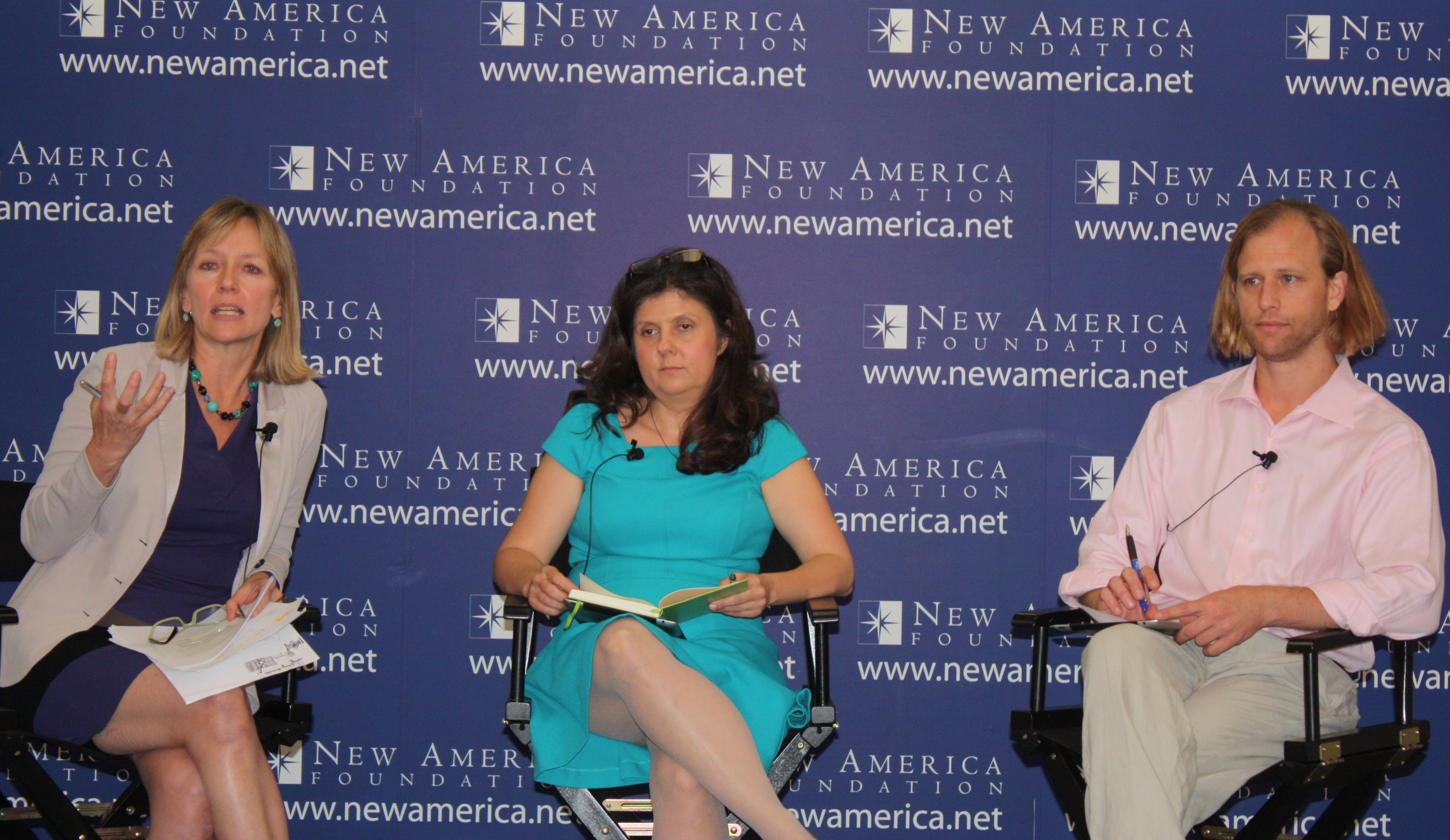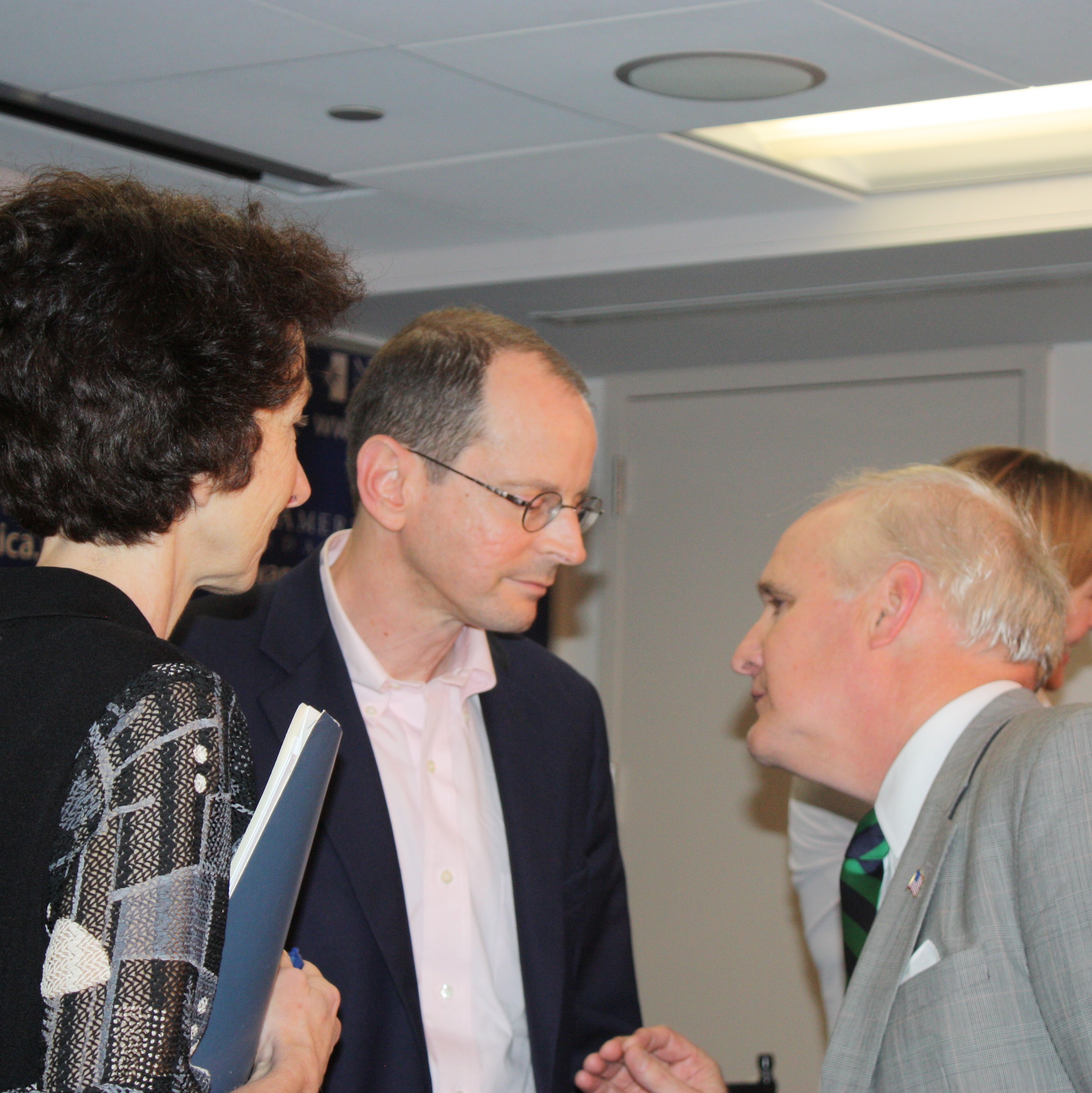
When Rauch was young, however, he did not have a similar experience.
From a very young age he recalled feeling that he may never marry and have children. He didn’t know why he felt this way, he said, but then as a young man living in the closet during the HIV/AIDs epidemic, his fear started to feel like a reality.
At a forum Wednesday hosted by the New America Foundation, a nonprofit public policy institute, Rauch, along with many other panelists, shared their own stories of same sex marriage, interfaith coupling, divorce and parenthood. Examining the “coupling and uncoupling” of America, the forum examined issues of race, earning power, gender roles and changing perceptions of what constitutes the modern American family. Four panels covered topics ranging from the prevalence of single motherhood to trends in divorce and opinions about gay marriage.

“Marriage is an economic deal between men and women,” said Stevenson who is a professor of public policy at University of Michigan and former chief economist at the Department of Labor. Years ago, it made sense economically for women to stay at home, but with the increased availability of goods, food and childcare, “the need for traditional homemakers has eroded,” she added.
Wolfers, also a professor at University Michigan and senior scholar at the Brookings Institution, agreed adding that when women step out of the workforce the economic burden they and their family feel isn’t just during their time at home, but can last a lifetime. When they return to work, he explained, they often go back for less pay and are never able to regain the lost wages and the possibility for promotion or tenure they may have experienced had they continued working.
At a panel entitled “Law of the Land: Will Gay Marriage Change Marriage, and if So, How,” Rauch and fellow panelists discussed the affects same sex marriage may or may not have on marriage and family. Moderator Naomi Cahn opened the panel by referencing academics who have said the push for equal marriage rights is about access to material benefits and the transformation of the institution.
Rauch and his fellow panelists disagreed.
“Marriage doesn’t bring benefits; it brings responsibilities,” said Rauch, also a guest scholar at the Brookings Institution. It’s about building a family, looking after your spouse and later your children, he added. The lesbian and gay communities aren’t looking for pecuniary gain, he explained, they are looking for the benefits of family.
“Love comes in many different packages,” added Martha Ertman, author and professor of law at the University of Maryland. And the gay and lesbian community are the only “culture on the planet,” she said, who cannot legally marry.
“The availability of marriage changes the LGBT psyche,” said Rauch. It gives them the hope of marriage and children they may not have otherwise had, he explained. Speaking to Youth Today, Rauch urged LGBT youth not to be ashamed or afraid, the way he was when he came out.
They should connect with a supportive community network, he said. And unlike years ago, many kids can rely on their parents and schools for support. They may still endure bullying from peers, he warned, but there are often community, school and family supports in place to help.
“Family” is a constantly evolving concept in America, said Liza Mundy, author and fellow at the New America Foundation. Society’s definition of marriage will continue to change, she added, but the institution will also continue to exist. While the movement towards equal marriage rights may influence marriage, it will not transform it, said Rauch. “I don’t think we are going to transform marriage,” he added, “I think it will transform us.”
Photos by Jessica Kendall. Top: Panelists Jonathan Rauch and Naomi Cahn speak with members of the audience at a New America Foundation forum on marriage in America.
Middle: Moderator Liza Mundy and panelists Betsey Stevenson and Justin Wolfers discuss the economics of marriage.

























